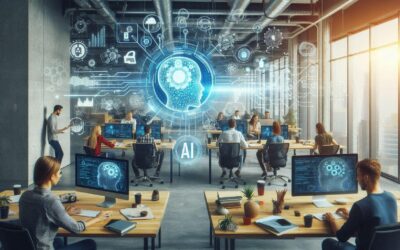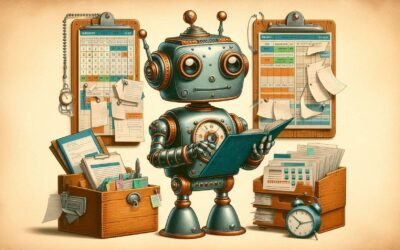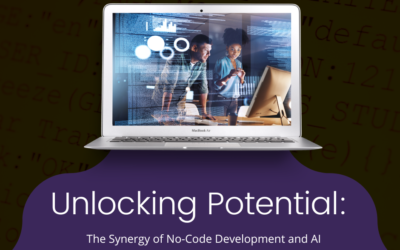Why HR Will Lead the Charge in Introducing AI to the Workplace

In the evolving landscape of business, Artificial Intelligence (AI) is rapidly transforming how companies operate. While many departments may leverage AI for enhanced efficiency and innovation, Human Resources (HR) is uniquely positioned to lead the charge in introducing AI to the workplace. Here’s why HR is at the forefront of this transformation and how it stands to revolutionize the employee experience.
1. HR’s Strategic Position in Organizations
HR sits at the intersection of business strategy and employee engagement. As the custodians of talent management, organizational culture, and workforce development, HR professionals are inherently tasked with ensuring that any technological advancements align with the company’s broader goals and employee needs. This strategic vantage point enables HR to drive AI adoption in a way that maximizes both organizational and employee benefits.
2. Policies and Procedures: The HR Backbone
HR is the gatekeeper of policies and procedures within an organization. These frameworks are critical when implementing AI because they:
– Ensure Compliance: HR policies ensure that AI deployment complies with legal and regulatory standards, safeguarding against potential violations.
– Protect Employee Rights: Procedures are in place to ensure that AI applications do not infringe upon employee rights, maintaining fairness and transparency.
– Facilitate Change Management: Effective policies guide the transition to AI, helping manage change and mitigate resistance from employees.
By anchoring AI implementation within these established policies and procedures, HR can ensure a smooth and ethical integration of AI technologies into the workplace.
3. Enhancing Recruitment and Talent Acquisition
One of the most immediate and impactful applications of AI in HR is in recruitment. AI-powered tools can streamline the hiring process by:
– Automating Resume Screening: AI algorithms can quickly sift through thousands of resumes, identifying the best candidates based on predefined criteria, thus saving time and reducing human bias.
– Improving Candidate Matching: Advanced AI systems can analyze job descriptions and candidate profiles to recommend the best matches, enhancing the quality of hires.
– Chatbots for Candidate Engagement: AI-driven chatbots can handle initial candidate queries, schedule interviews, and provide updates, offering a smoother candidate experience.
By embracing AI in recruitment, HR can significantly improve efficiency and effectiveness, ensuring that the best talent is identified and engaged promptly.
4. Personalized Employee Development
AI has the potential to revolutionize employee training and development by providing personalized learning experiences. Machine learning algorithms can analyze individual employee performance data to identify skill gaps and recommend tailored training programs. This personalized approach ensures that employees receive the right training at the right time, enhancing their professional growth and overall job satisfaction.
5. Predictive Analytics for Workforce Planning
HR departments can leverage AI for predictive analytics to anticipate future workforce needs. By analyzing trends and patterns in employee data, AI can help HR professionals forecast:
– Turnover Rates: Predict which employees are at risk of leaving and proactively implement retention strategies.
– Skills Demand: Identify emerging skills needed in the future and plan training programs accordingly.
– Talent Gaps: Anticipate talent shortages in specific areas and develop targeted recruitment strategies.
Predictive analytics thus empowers HR to make data-driven decisions, ensuring the organization is well-prepared for future challenges.
6. Enhancing Employee Engagement and Satisfaction
AI can play a crucial role in enhancing employee engagement and satisfaction by providing insights into employee sentiment and behavior. For example:
– Sentiment Analysis: AI tools can analyze employee feedback from surveys, emails, and social media to gauge overall sentiment and identify areas of concern.
– Pulse Surveys: AI-driven pulse surveys can provide real-time insights into employee morale, enabling HR to address issues promptly.
– Personalized Employee Support: AI chatbots can offer personalized support and resources to employees, improving their overall experience and satisfaction.
By leveraging AI, HR can create a more responsive and engaging work environment, fostering a culture of continuous improvement and employee well-being.
7. Streamlining Administrative Tasks
AI can automate many routine HR administrative tasks, such as payroll processing, benefits administration, and compliance tracking. By reducing the burden of these time-consuming activities, HR professionals can focus more on strategic initiatives and employee-centric activities. This shift not only improves HR efficiency but also enhances the overall employee experience by ensuring that administrative processes are seamless and error-free.
Conclusion
As AI continues to evolve, its potential to transform the workplace is immense. HR, with its strategic role and focus on people, is uniquely positioned to lead the charge in introducing AI to the workplace. By leveraging AI for recruitment, employee development, workforce planning, engagement, and administrative tasks, HR can drive significant improvements in efficiency, effectiveness, and employee satisfaction.
Moreover, HR’s established policies and procedures are crucial for the successful and ethical implementation of AI. These frameworks ensure compliance, protect employee rights, and facilitate smooth change management. As HR professionals embrace AI, they will not only enhance their own functions but also play a pivotal role in shaping the future of work.



